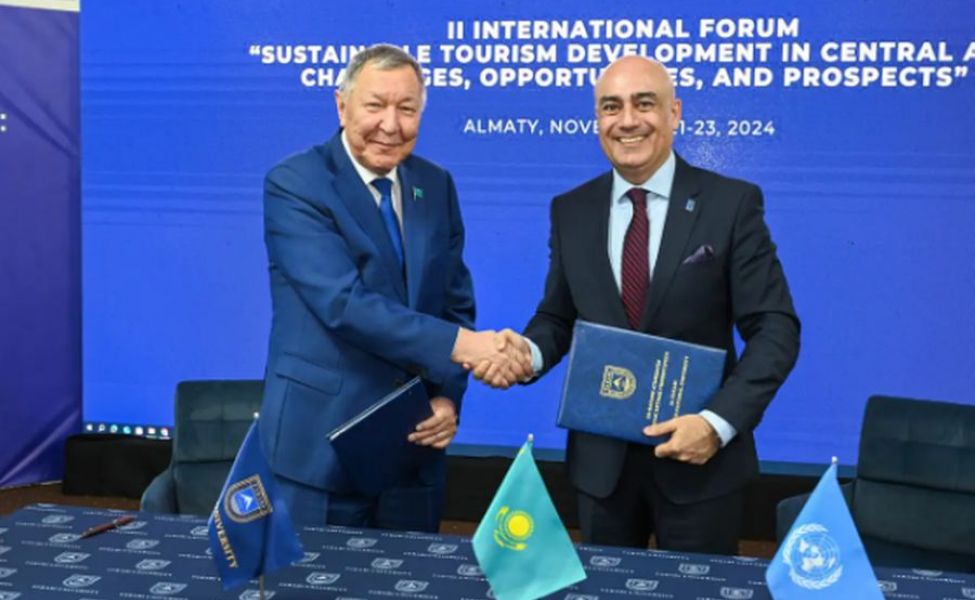
The United Nations Development Programme (UNDP) in Kazakhstan and the Al-Farabi Kazakh National University (KazNU) have signed a memorandum of understanding on the development of ecotourism
The aim of the bilateral cooperation is to strengthen cooperation in the field of sustainable development and the implementation of modern practices in the tourism and environmental protection sector at Kazakhstan's universities. This agreement was signed within the framework of the Biodiversity Finance Initiative - BIOFIN, which implements six financial solutions in Kazakhstan, including the creation of a basis for certification in the field of ecotourism, Kazinform News Agency cites the UNDP in Kazakhstan.
As part of the BIOFIN project, a revision of the National Standard ST RK 2993 "Tourism services. Ecological tourism. General Requirements" was initiated, which sets out general and additional requirements for ecotourism, including issues of biodiversity conservation and control of invasive species, environmental education, waste recycling and the use of energy-saving technologies. In addition, the standard is in line with international ecotourism practices and is adapted to the national context.
Ecotourism is one of the most dynamically developing sectors in the world, recognised as an effective tool for the protection of nature and sustainable human interaction with it. The sustainable development of ecotourism is based on the implementation of a system of standards that make it possible to promote tourism in natural areas without damaging biodiversity and ecosystems, thus contributing to the effective growth of the well-being of local communities. The implementation of training modules in the university's curriculum and the correct interpretation of environmental issues will improve the quality of education of students in the field of ecotourism and strengthen knowledge in environmental management according to the National Standard ST RK 2993.
According to Sukhrob Khojimatov, UNDP Deputy Resident Representative in Kazakhstan, ecotourism is one of the most effective ways to minimise the impact of humans on the environment and biodiversity and to create a balance between people and nature.
"Ecotourism is currently receiving more attention around the world. Sustainable tourism creates new economic opportunities and influences the growth of employment and income of local communities living outside the cities. In Central Asia, Kazakhstan has extensive natural areas with national parks and reserves. The sustainable development and management of these specially protected natural areas through the integration of ecotourism will create a multiple impact that includes social, economic and humanitarian aspects. The introduction of innovative methods in educational institutions based on modern practices in the field of sustainable tourism development will enable the training of professionals who will make an important contribution to achieving sustainable development", - said Sukhrob Khojimatov.
It is worth noting that at this stage BIOFIN, together with Al-Farabi Kazakh National University, is implementing initiatives to update the structure and format of training modules in accordance with the national standard in the field of tourism in Kazakh and Russian, as well as their consistent integration into the educational curriculum of the country's universities.
"Being a flagship academic education institution, Al-Farabi Kazakh National University actively supports initiatives to introduce modern international practices. The memorandum with UNDP will enable us to train qualified personnel, through which it will be possible to develop tourism in an environmentally friendly way that contributes to the preservation of the country's natural resources and cultural heritage", - said Erkin Duisenov, Deputy Chairperson of the Board of Al-Farabi Kazakh National University.
Photo: UNDP in Kazakhstan.
YOU CAN SHARE YOUR OPINION AND DISCUSS THE ARTICLE ON OUR TELEGRAM CHANNEL!









